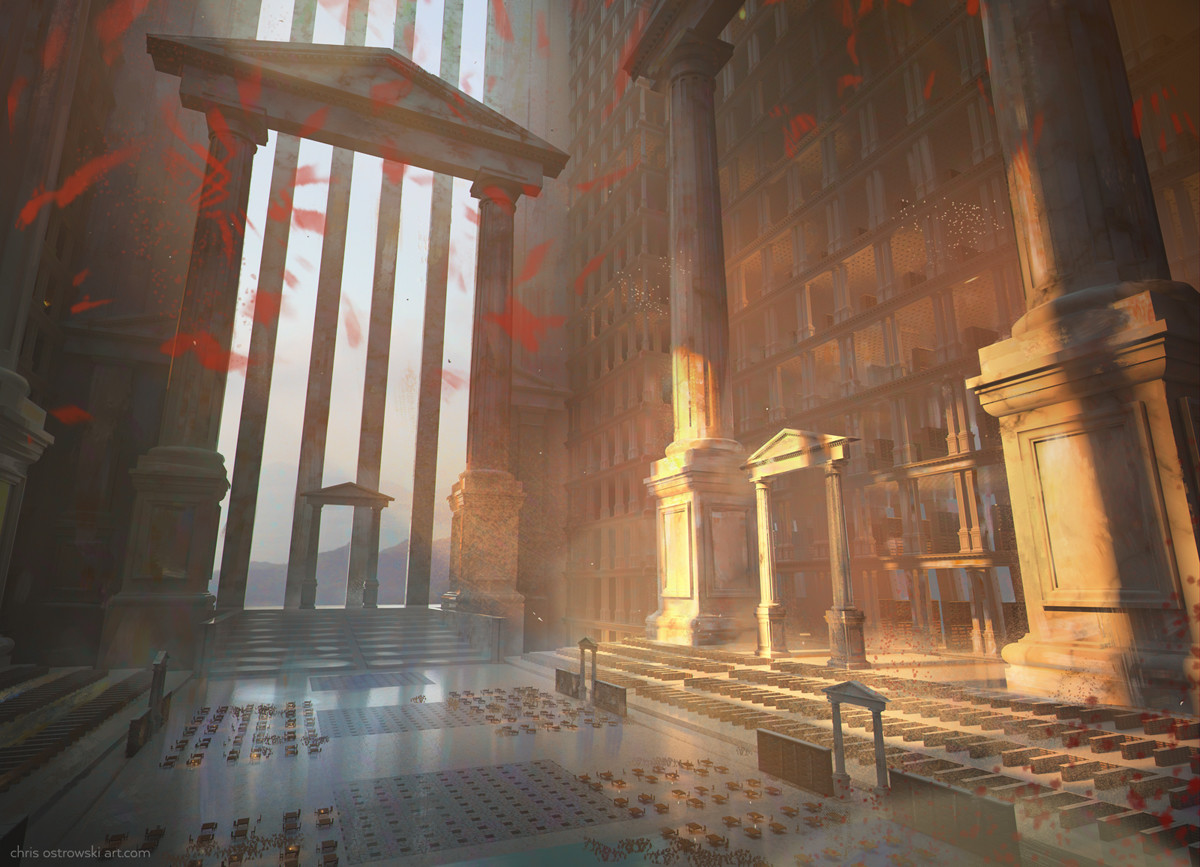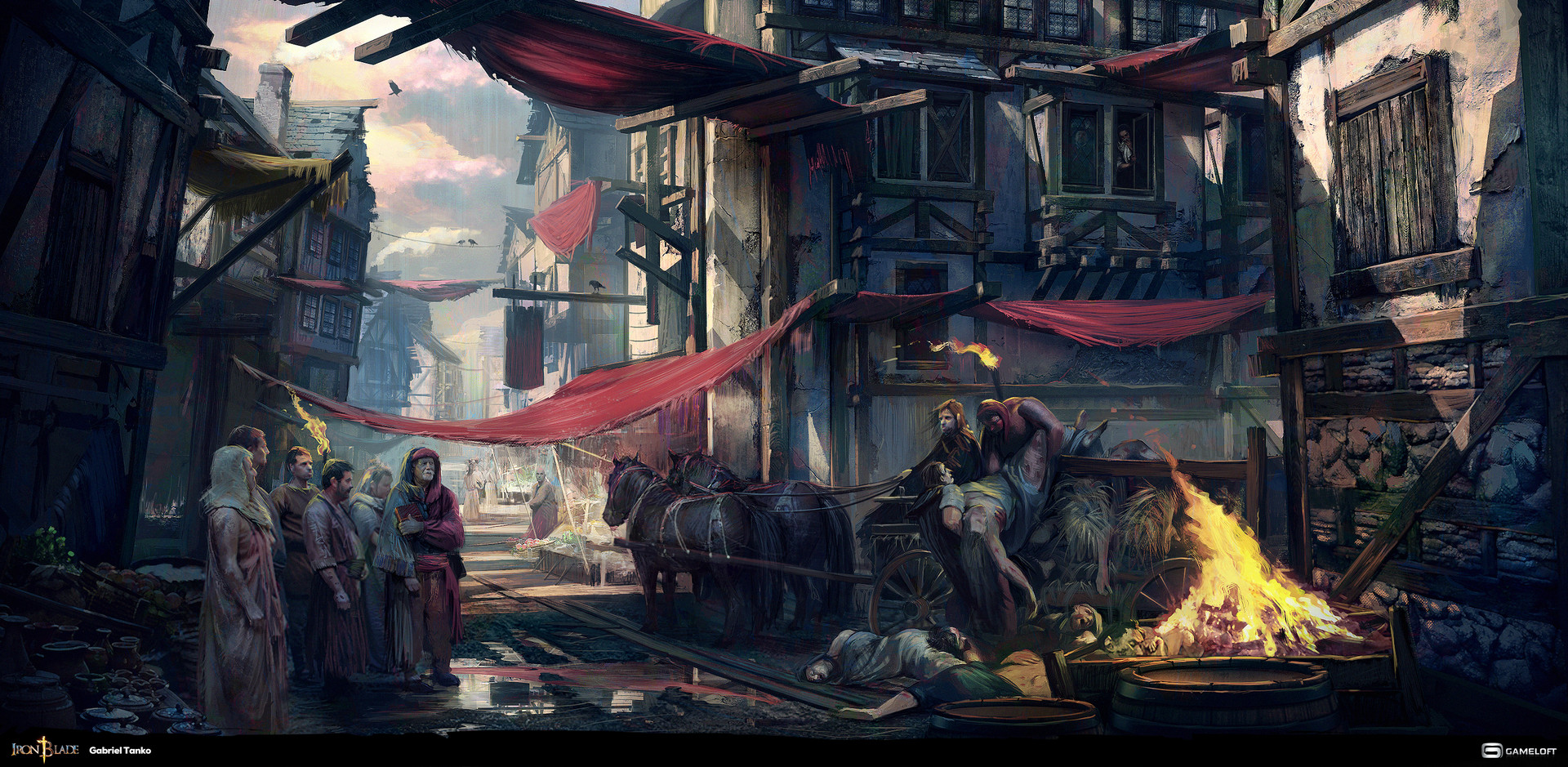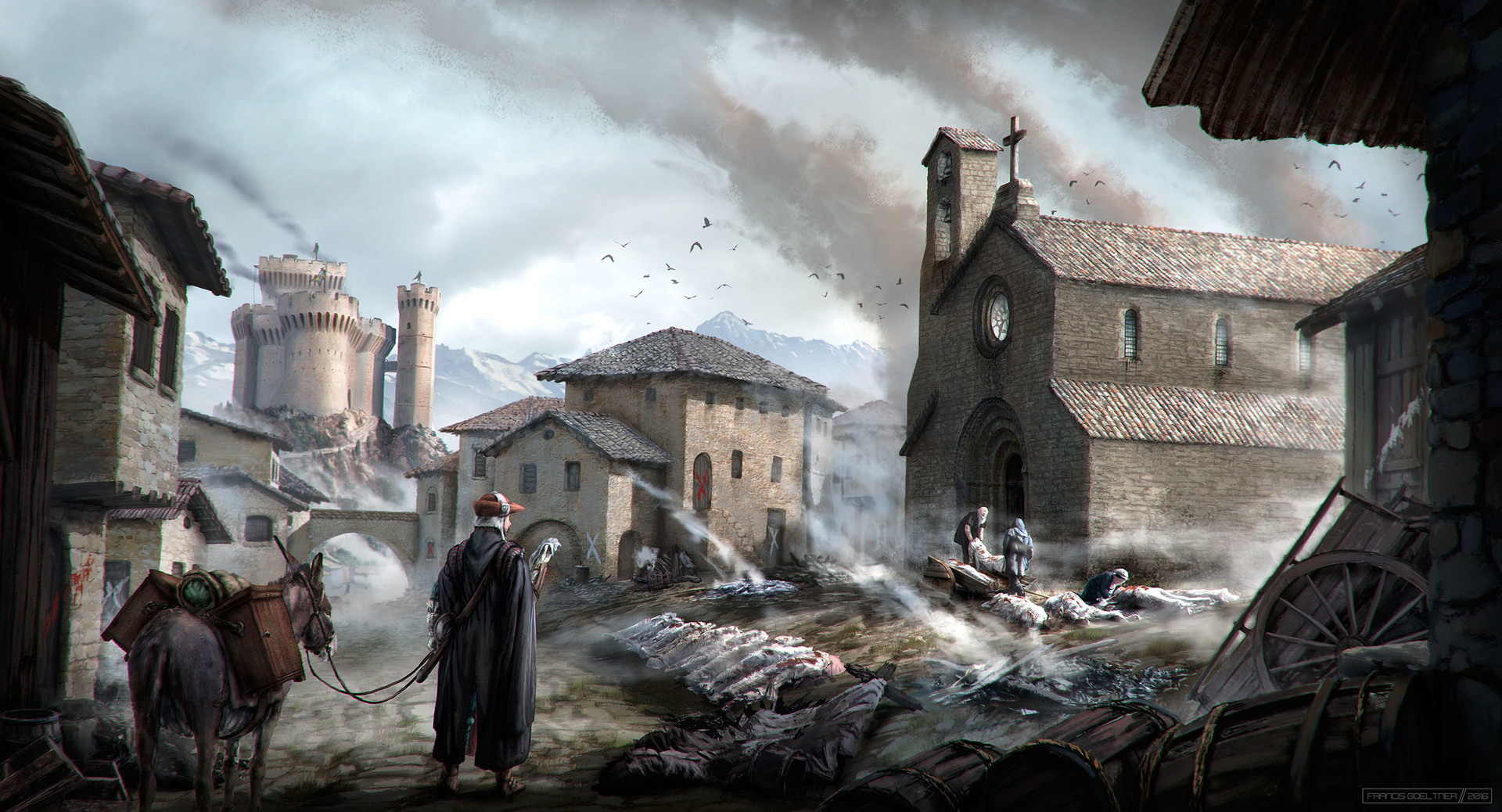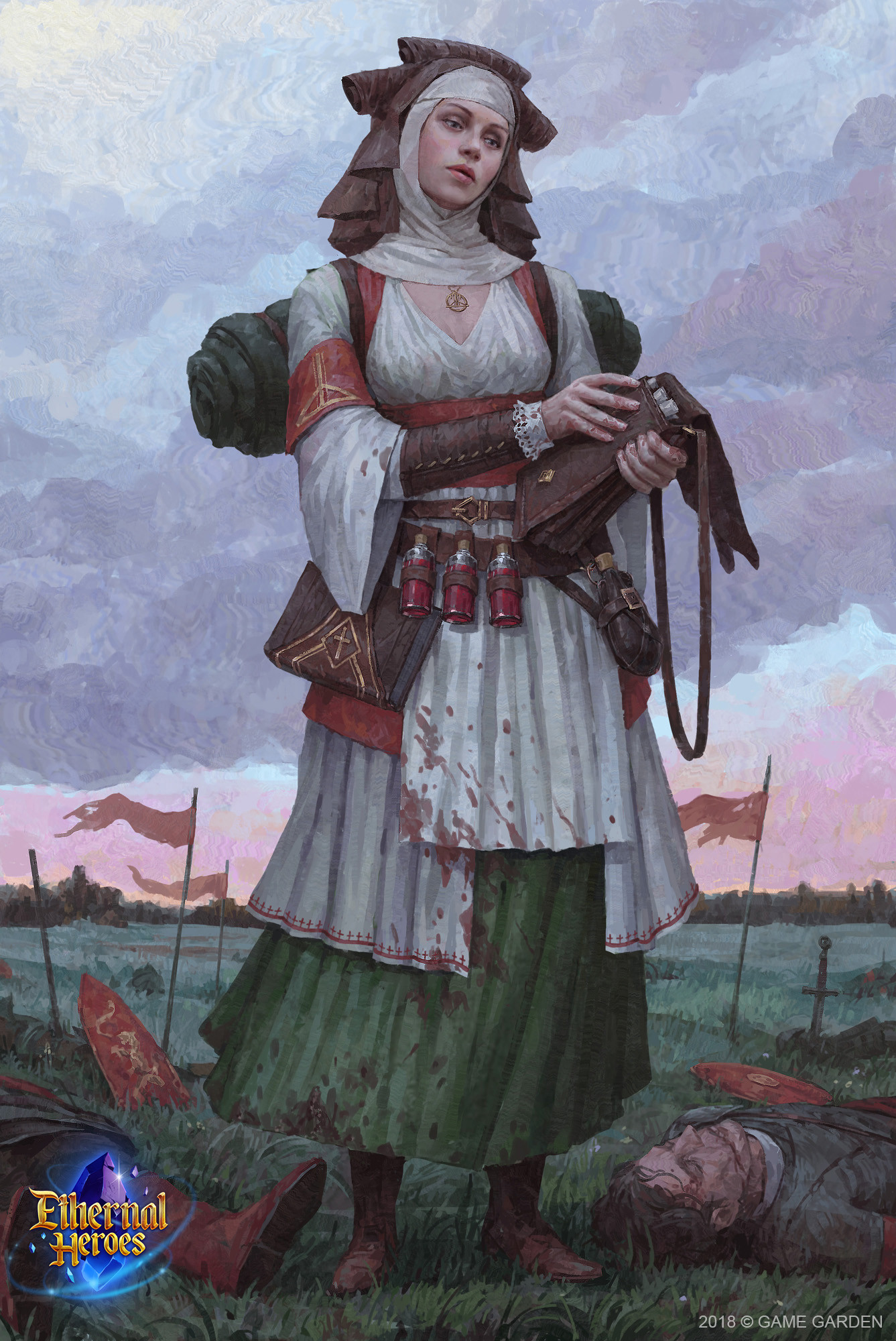Ordo Emelia
I am a child of Emelia. I am a student of Kutydis. I am the enemy of Pestis, Harbinger of Decay, and I will never cease to fight her. To protect the healthy. To heal the ill. To cleanse the corrupted. This is my duty. This is my fate. From now on until the end of days.Plague has been a companion of humanity since its earliest days. From minor nuisance to grim reminder of our mortality, disease shapes the existence of humans, in ways few forces can. But if there is one thing one can say about humans, its that they like to fight. Themselves, beasts, gods and whatever else might have looked at them the wrong way. And so there are those that have taken up the fight against mankind's ancient spectre. Most famous or infamous, depending on who you ask, the Ordo Emelia.
Born among the Fires of War
Its origins lie within one of the most devastating wars to ever be waged on Vardanian soil. Known as the Divine Sundering, the Feran rebellion, driven by a mix of religious fanaticism and hatred for Vardanians, tore the continent apart. In its wake, disease spread like wildfire and only the commitment of the armies medicae units prevented an all-out disaster. Chief among them Emelia Junia, who was awarded the title of Archea Medicana, for her service. Using her newly gained influence, she began to build a corp solely dedicated to matters of medicine. Over the years, this new corp only gained influence and fame, doing much to contain the third outbreak of the Valerian Plague in 2767 DA. The organization began to increasingly separate itself from the army, opening hospices and archives across Vardania. No longer part of another organization, the corp survived the fall of the Third and Fourth Hegemonies and even established itself outside of Vardania. Renamed to Ordo Emelia, in honour of their founder, in 3012 DA, the organization has become famous for its interventions in crisis areas. Best known among these the large scale rescue operations, following the Brightflame Hour in 3100 and the containment of the Interran Outbreak in 3301.Fanatical Doctors
Today, the order operates a vast array of hospices, archives and other institutions across Vardania, Interra and Anidara. A few smaller sub-organizations exist in the largest cities of Scetia as well. It is not bound by any national entity but operates under a series of contracts. These differ from country to country and regulate the amount of influence the order has. Operations on such a scale are costly of course and so the order has taken a multi-pronged approach to finance itself. They produce and sell medicine and medical equipment, take donations, charge for their operations and even work as mercenaries of a kind, serving as medical units for foreign armies. How many members there are exactly, is not common knowledge. The order remains rather secretive, regarding its inner workings. A basic distinction can be made between active and passive members. Passive are considered those that administer the order's various possessions and businesses. Active members put their own livelihoods on the line, based on the three aspects of the order.Religious Fervor
Over the years, the Ordo Emelia developed an increasingly religious connotation. It is unlikely that this is based on Emelia's own views, as she was noted to have a heavy disdain for religion, after witnessing the devastating Sundering. In its own form of religious doctrine, disease and its avatar, Pestis, Harbinger of Decay, are the eternal enemy, to be fought at every turn and to be eradicated from existence.
Over the years, the Ordo Emelia developed an increasingly religious connotation. It is unlikely that this is based on Emelia's own views, as she was noted to have a heavy disdain for religion, after witnessing the devastating Sundering. In its own form of religious doctrine, disease and its avatar, Pestis, Harbinger of Decay, are the eternal enemy, to be fought at every turn and to be eradicated from existence.
Scientific Curiosity
One would be foolish to simply reduce the order to a group of religious zealots, however. Large part of its concept is still the pursuit of science and how to combat disease effectively. For this purpose, the order operates a variety of institutions, sometimes in cooperation with the great archives of the world and sometimes on its own. Rumours that it experiments on living humans are widespread.
One would be foolish to simply reduce the order to a group of religious zealots, however. Large part of its concept is still the pursuit of science and how to combat disease effectively. For this purpose, the order operates a variety of institutions, sometimes in cooperation with the great archives of the world and sometimes on its own. Rumours that it experiments on living humans are widespread.
Martial Ability
The order never forgot its martial origins. To this day, its medicae follow the same principle as the medicae of the Vardanian armies, fight and heal. Every field medicae is a trained fighter, more than able to defend themselves from regular soldiers and bandits. Special emphasis is put on the protection of individuals under their care. This is direly needed, as field hospices are often the target of marauding soldiers.
The order never forgot its martial origins. To this day, its medicae follow the same principle as the medicae of the Vardanian armies, fight and heal. Every field medicae is a trained fighter, more than able to defend themselves from regular soldiers and bandits. Special emphasis is put on the protection of individuals under their care. This is direly needed, as field hospices are often the target of marauding soldiers.
You might call our methods extreme, but to vanquish the eternal enemy, one must use all available tools. No matter how cruel they may seem. If we have to make sacrifices for the good of all of humanity, so be it.
Remove these ads. Join the Worldbuilders Guild







I love how Emelia would not condone some of what the order has become, most notably their opinions and reverence of her. It adds depth and makes this organization feel more real, plus adds characterization to her as well. I really enjoyed this article. Beautifully written!
Necromancy is a Wholesome Science.